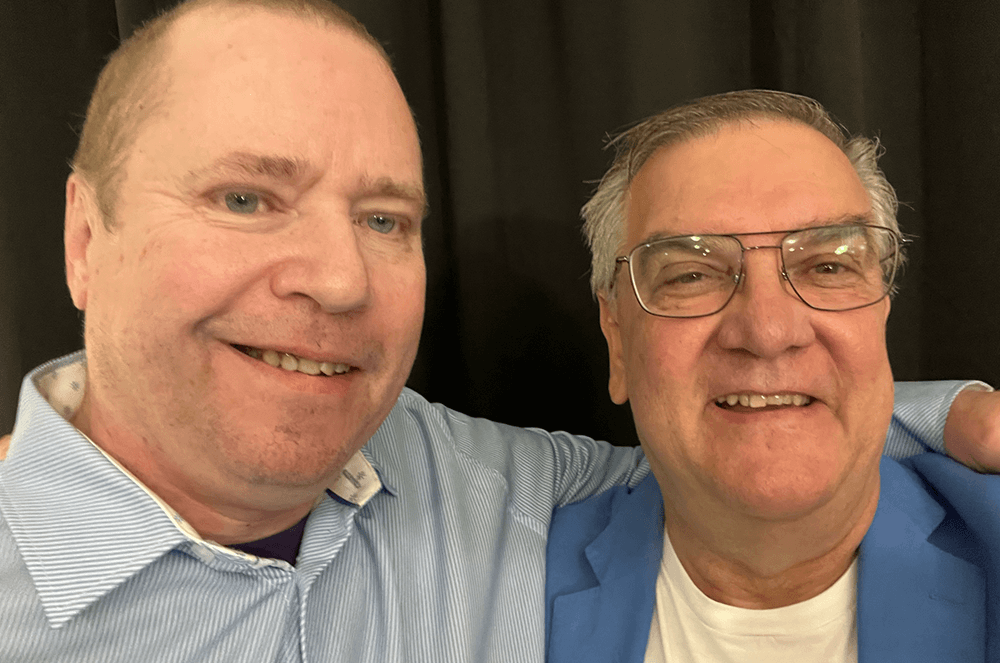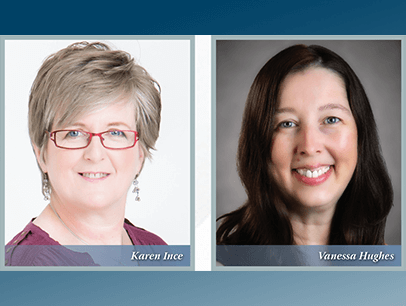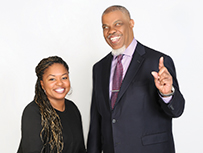
As I walk into a Toastmasters meeting room, with a lectern at the head of a long table and a timer at the foot, I feel the same way I did many years ago, walking into a similar room as a teenager. I had my difficulties back then, yet I had so many advantages: close friends, a loving family—and the Royal Canadian Air Cadets.
This national organization, for youths 12 to 18, promotes physical fitness, good citizenship, and an interest in the Air Force wing of the Canadian Armed Forces. One of the best things it did for me was bring Toastmasters into my life. Back in 1987, the Air Cadets sponsored a Toastmasters Youth Leadership Program (YLP) for our group of about 20 students in St. Albert, Alberta, Canada.
We began our first weeks of the course with two Toastmasters, Peter Helten, DTM, and Bernard Jordaan (who has since passed away). Peter then took over the course and taught a number of 10-week sessions for different students, for about two years. That takes true dedication.
He had been an Air Cadet himself—in fact, the Senior Warrant Officer of our squadron, 533 St. Albert Royal Canadian Air Cadets.
Peter was an invaluable mentor to me. He gave me encouragement and support at a time when I really needed it. I can still hear the words of my old instructor: “Keep your feet planted and look up from your notes every few seconds to make eye contact.” His impact on me was lasting.
Thirty-six years after I participated in the YLP, I have joined a club: Norwood Toastmasters Club in Edmonton—recommended to me by Peter. Despite our different paths in life, I have kept in touch with my old mentor (a fellow Edmonton resident) over the years, often running into him on the train or meeting him for coffee. Peter says the time he spent teaching the YLP to Air Cadets was one of the best experiences of his life.
“There is nothing like the feeling of seeing young people grow and learn in their public speaking and leadership skills, and then go on to develop as adults,” he told me recently.
A Shaky Start
I still remember my first prepared speech in front of my fellow Air Cadets. I uttered lots of ums and ahs and was visibly shaking. I couldn’t maintain eye contact with the audience members and felt no one wanted to hear me talk about my hobby of collecting combat uniforms from different countries. But somehow I got through it.
By the end of my Toastmasters YLP course, I was far more comfortable speaking in front of others, and my general confidence level had soared. Peter established a safe and supportive atmosphere, and I experienced an amazing amount of personal growth.
Peter had first joined Toastmasters after hearing about it as a member of the Independent Order of Foresters, a fraternal organization. He remained a Toastmaster until the 1990s and then rejoined in 2014. He’s currently a member of two clubs in Edmonton: Edmonton Advanced Toastmasters Club and the Fabulous Facilitators Club.
“There is nothing like the feeling of seeing young people grow and learn in their public speaking and leadership skills, and then go on to develop as adults.”
—Peter Helten, DTMFor me, the work I put into Air Cadets, especially the YLP workshop, kept paying me back throughout my adult life. Just knowing how to express myself with confidence in front of people came in extremely handy. At times in the ensuing years, I went to support groups and was able to talk about things that bothered me. In my current part-time work as a community education presenter for the Schizophrenia Society of Alberta, I speak in front of audiences about how I overcame mental health difficulties.
I had been living with a diagnosis of schizophrenia since I was 18, but never really felt like I was a part of the solution. Now, giving speeches to groups at high schools, universities, colleges, and other organizations greatly helps my mental health. Giving these presentations helps me stay grounded. Talking about how I overcame my illness reminds me of the importance of taking medications, and to keep on consulting with my treatment team. There is also the bonus that I am increasing awareness and decreasing the stigma surrounding a serious illness that is often misunderstood.
Not having any practice or training for a long time made the public speaking job difficult at first, but after a few presentations my old skills kicked in and I really began to enjoy the process. I learned to adapt my presentation to different audiences, and I gradually became more and more comfortable. Now I am often asked to give talks about mental health to the Edmonton Police recruit class, something I am very proud of.
Literary Passion
I have written books about mental health, and also written poetry and stories. I have also participated in language-related “slams”—competitions where the speakers perform the poetry or the stories they have written. For a time, I even had my own community-access radio program where I would read classic poetry and interview local poets and writers.
I currently have a second job teaching creative writing and current events to patients at a hospital that I once was a psychiatric patient in, 22 years ago. It feels good to be able to give back, and I honestly don’t think I could have done it without the kickstart Toastmasters gave me in my teen years.
In early 2023, I became a member of the advisory council for CureSZ, a charitable foundation serving people living with schizophrenia. It meant I would have the opportunity to speak at conferences and other events, so I decided it was a good time to return to Toastmasters.
Luckily, Peter Helten was still just a phone call away. He was the one who directed me to Norwood Toastmasters Club, just a short walk away from where I live in Edmonton. I have already made friends in the club and had a wonderful time stretching my public speaking muscles.
Taking time out each Thursday to attend the meetings takes me back to my youth, when I was an Air Cadet. It also gives me so many things to look forward to, from completing my path in the Pathways learning experience to entering speech contests, and generally not only feeling better about myself but improving in everything I participate in, from giving presentations to teaching.
Next Chapter
Peter is still using his Toastmasters experience to help others. He was asked to be a regional judge this year for the Air Cadets’ National Effective Speaking Competition, is a judge for Toastmasters speech contests, and has taught a Toastmasters Speechcraft course for the University of Alberta Pharmacy Department.
After being introduced to Toastmasters as a teenager, I am excited to be a member all these years later. As I learn more and become more familiar with the “adult” Toastmasters program, I feel I still have a lifetime of learning and growth to look forward to.
Leif Gregersen is a member of Norwood Toastmasters Club in Edmonton, Alberta, Canada. He works as a writer, teacher, and public speaker. He has written 12 books, all available on Amazon.



 Previous
Previous

 Previous Article
Previous Article

